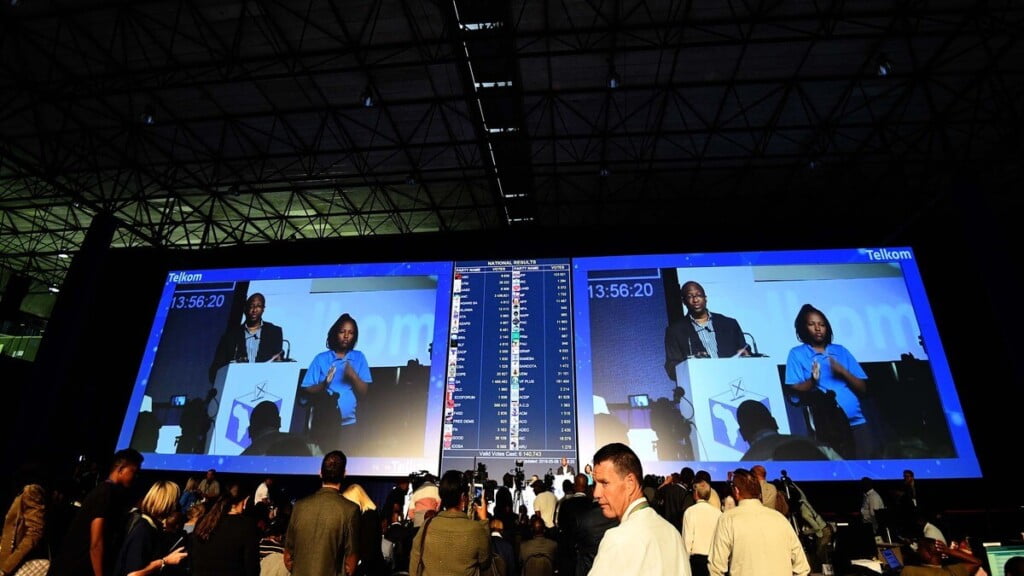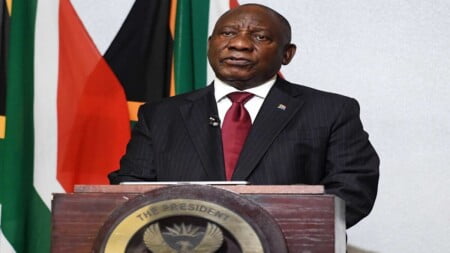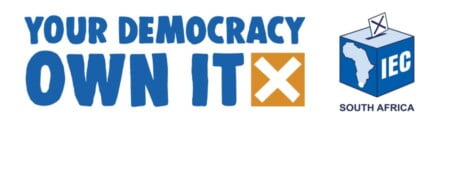As South Africa edges closer to the announcement of the Election Results 2024, the nation is on high alert. The Independent Electoral Commission (IEC) has been meticulously counting the votes, with the national tally now sitting at over 98%.
Despite this, the final results may not be announced soon due to several ongoing objections from various political parties.
Current Status of the Election Results 2024
As of now, the IEC is dealing with objections from several political parties, which is delaying the announcement of the final results. The IEC is regularly briefing the media at the National Results Operations Centre in Midrand to keep the public informed about the status of the vote count and any challenges they face.
Latest Updates from the National Results Dashboard
For real-time updates, the IEC provides a comprehensive National Results Dashboard. This dashboard offers detailed insights into the counting progress, voter turnout, and provisional results from various regions.
- Vote Counting Progress: As of the latest update, the vote counting process is over 98% complete. This indicates that the majority of votes have been tallied, and the remaining counts are being finalized.
- Objections and Disputes: The IEC is currently handling several objections raised by political parties. These objections need to be thoroughly investigated and resolved before the final results can be announced.
Factors Influencing the Timing of Results
Several factors can influence when the IEC is able to declare the Election Results 2024:
- Voter Turnout: Higher voter turnout can lead to longer counting times. With more ballots to count, the process may take additional time to ensure accuracy.
- Geographical Challenges: South Africa’s diverse geography means that some areas, particularly rural or remote regions, may take longer to report their results.
- Technological Issues: Any issues with the electronic systems used to tally votes can cause delays.
- Disputes and Recounts: If there are any disputes or requests for recounts, this can delay the final announcement of results.
Political Landscape and Coalition Talks
With the general election results indicating no outright winner in Wednesday’s polls, political parties are already engaging in coalition talks. The governing African National Congress (ANC) is set to lose its three decades of political dominance following a significant drop in support. This shift in political dynamics is paving the way for potential new alliances and power-sharing agreements among different political entities.
Impact of Objections
The objections from political parties can significantly impact the timing of the final results announcement. Each objection requires careful examination to ensure the integrity of the election process. This may involve recounts or additional verification steps to address the concerns raised by the parties involved.
The Importance of Patience
While the wait for election results can be nerve-wracking, it is essential to be patient. The IEC’s meticulous process is designed to ensure that the results are accurate and credible. Rushing this process can lead to errors and undermine the integrity of the election. Here are several reasons why patience is crucial during this period:
Ensuring Accuracy and Credibility
The primary goal of the IEC is to deliver results that accurately reflect the will of the people. This involves a thorough verification and consolidation process, where every vote is carefully counted and cross-checked. Any discrepancies or irregularities are investigated and resolved to maintain the integrity of the election. By allowing the IEC the necessary time to complete these tasks, voters can have confidence in the final outcome.
Addressing Objections and Disputes
As mentioned, several political parties have raised objections regarding the counting process. Each objection must be meticulously examined to ensure that all concerns are addressed fairly and transparently. This may involve recounts, additional audits, or other verification steps. Rushing this process could overlook critical issues and lead to contested results, which could cause further delays and undermine public trust in the electoral system.
Technological and Logistical Challenges
South Africa’s diverse geography and varied infrastructure can present logistical challenges in delivering election materials and counting votes, especially in remote or rural areas. Additionally, the use of electronic systems for tallying votes, while efficient, can encounter technical issues that require time to resolve. Patience is necessary to allow the IEC to navigate these challenges effectively and ensure that every vote is counted accurately.
Maintaining Public Trust and Confidence
The credibility of the electoral process is paramount to maintaining public trust and confidence in the democratic system. A rushed or flawed announcement of results could lead to widespread skepticism and dissatisfaction among the electorate. By taking the time to ensure a thorough and transparent process, the IEC helps to uphold the integrity of the election and foster a sense of fairness and trust among voters.
Historical Context and Precedent
Looking at past elections, the IEC has consistently taken a few days to announce official results. This timeline is not unusual and is designed to ensure all necessary checks and balances are in place. Understanding this historical context can help set realistic expectations and reduce anxiety during the waiting period.
The Bigger Picture
While the immediate focus is on the Election Results 2024, it is essential to remember that the electoral process is a cornerstone of democracy. Ensuring that the process is thorough, transparent, and credible is more important than a quick announcement. The integrity of the election impacts not just the immediate results but the overall trust in the democratic system and future elections as well.
Related: Social Media Commentary on Election Results and Voter Engagement in 2024
The IEC is expected to declare the Election Results 2024 within three to four days of the election day. However, this timeline can be influenced by several factors, including voter turnout, geographical challenges, technological issues, and potential disputes.
South Africans can rest assured that the IEC is committed to conducting the elections in a fair and transparent manner, ensuring that every vote counts and that the final results accurately reflect the will of the people.










